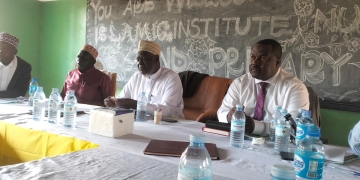
The National Budget Reading for FY 2022/23 is set for tomorrow June 14, 2022 under the theme, “Full Monetisation of the Ugandan Economy through Commercial Agriculture, Industrialization, Expanding and Broadening Services, Digital Transformation and Market Access.”
Finance minister Matia Kasaija is expected to read a a Shs48.1 trillion Budget that was passed by Parliament in May 2022.
The Budget will be financed through the taxman’s collections (Shs25.7 trillion), grants (Shs2.1 trillion) and domestic borrowing (Shs7.1 trillion).
In the Budget, Ugandans are expected to know what government has put in place for socioeconomic transformation, speeding up economic recovery, improving wellbeing of Ugandans and economic growth strategy as the country continues to smart from the Covid-19 pandemic and recent geopolitical tensions in the Black Sea region.
According to Dr Adam Mugume, the executive director research at Bank of Uganda, the FY2022/23 budget focuses on industrialisation for inclusive growth while building on infrastructure development.
The appropriations show that the human capital development programme—in which the education, health, and gender sectors fall—hold the lion’s share of the national cake, splitting Shs8.7 trillion (or 18 percent of the Budget).
They are followed by security and governance, whose cumulative Shs7 trillion reflects a 14 percent share of the Budget.
“A budget of Shs48.1 trillion will need to be funded through a combination of borrowing and revenue mobilisation and this is complex when inflationary pressures are broadening, requiring monetary policy tightening. Rising prices ideally require intervention to ensure that vulnerable households are protected. But with a tight budget and the need to safeguard debt sustainability, this is delicate balancing, even when the situation could be temporary,”
ADAM MUGUME, EXECUTIVE DIRECTOR RESEARCH AT BANK OF UGANDA
The same Budget also indicates that the integrated transport infrastructure and services has been given Shs4.1 trillion; sustainable energy development (Shs1.6 trillion); and the private sector development (Shs1.5 trillion). These constitute the top five funded units.
The least funded include innovation, technology development and transfer with Shs20b; mineral development (Shs31b); community mobilisation and mindset change (Shs73b) and digital transformation (Shs83b).
Dr Mugume also believes that the 2022/23 budget puts emphasis on fiscal consolidation, with fiscal deficit as a percentage of GDP projected to decline to about 5.1 per cent compared to 7.5 per cent in FY2021/22 and 9.1 per cent in FY2019/20.
In Dr Mugume’s analysis, fiscal (revenue) consolidation is necessary to contain public debt at sustainable levels. However, the budget will have to negotiate several risks in the year.
According to Dr Mugume, the budget is premised on GDP growth of 6 per cent in an environment characterised by elevated uncertainty, largely stemming from the global economy.
In his analysis, he identified three known unknowns that the economy and national budget will have endure: first, the unknown duration of the Ukraine war and related sanctions, which have triggered a sharp rise in commodity prices.
“A budget of Shs48.1 trillion will need to be funded through a combination of borrowing and revenue mobilisation and this is complex when inflationary pressures are broadening, requiring monetary policy tightening.Rising prices ideally require intervention to ensure that vulnerable households are protected. But with a tight budget and the need to safeguard debt sustainability, this is delicate balancing, even when the situation could be temporary.”
Given that the government needs revenue to operate, Mr John Jet Tugume, a tax expert, argues that tax payers should brace for revenue enforcement because it is only through that measure that some revenue can be squeezed out of the lull economy.
“This time, the budget has tried to keep away from increasing taxes on many commodities because of the challenging prevailing economic situations. This makes sense. But remember it is a huge budget with high expectations. So government is looking at enhanced enforcement of existing laws to collect the revenue needed,” Mr Tusabe said.










